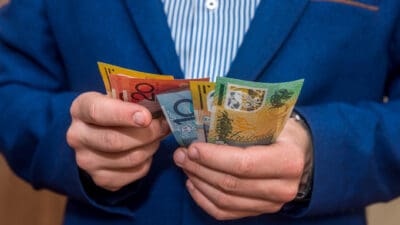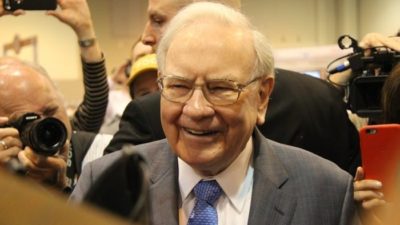The efficient market hypothesis says that asset prices reflect all available information.
The consequence is that it's impossible for anyone to consistently "beat the market", unless they have private information that no one else has. That is, illegal insider trading.
Forager Funds senior analyst Gareth Brown does not subscribe to this theory 100%, but finds the idea "useful".
"Markets are mostly efficient, most of the time," he posted on the Forager blog.
"When it's time to make any investment, we better have a good theory as to why we're right and 'the market' is wrong."
Brown noted that now, more than ever, the theory applies because data is so freely (or cheaply) accessible to everyone.
"Seamless information flow, more analysts, more computer power. These are but a few reasons why markets are also getting more efficient over time."
However, one shouldn't give up on finding true bargains because "markets can be surprisingly ignorant from time to time", according to Brown.
"Especially at the smaller end of the market," he said.
"Their periodical insanities may also be getting more extreme too."
Brown took the company ThinkSmart Limited (LON: TSL) as a recent example.
The British 'cousin' of Afterpay Ltd (ASX: APT)
ThinkSmart's fortunes are closely correlated to ASX market darling Afterpay.
"A few years ago when Afterpay was focused on Australia, tiddler ThinkSmart started a copycat business in the UK called Clearpay," said Brown.
"When Afterpay decided to take on the UK, they deemed it wiser to acquire the fledgling Clearpay than start from scratch."
After the buyout, ThinkSmart's major asset ended up being its 6.5% ownership in Afterpay's UK arm. The terms of the acquisition will eventually force this stake to be sold to the parent in 2023 or 2024.
But for now, the value of ThinkSmart's stocks should be synchronised with Afterpay. That is, if the market was 100% efficient.
"Yet here's what happened over the first 6 months of 2020. Afterpay shares rose 99%. And ThinkSmart shares fell 11%," Brown said.
Inefficient market! That was the time to buy into ThinkSmart.
"And what about the almost 9 months since 1 July 2020? Afterpay rose a further 73%, ThinkSmart 
So there's an example where everyone knew of a direct relationship between two companies, but the market still greatly underpriced ThinkSmart for a period.
"What about that all-seeing, all-knowing market?" said Brown.
"Well, there's still plenty a diligent investor can do to gain an edge over it. Look hard and think smart."
Other bargain examples
There are many other examples of market inefficiency in The Motley Fool's weekly Ask A Fund Manager series.
Each professional investor is asked what her or his most proud stock purchase was. And inevitably the answer points to a share that was undervalued at the time the fundie picked it up.
"Probably in recent times, the stock that perhaps I'm most proud of would be something more like Carsales.com Ltd (ASX: CAR)," SG Hiscock High Conviction Fund portfolio manager Hamish Tadgell said in January.
"We bought it when it was out of favour, I think it was about October 2018. On the back of declining new car sales volumes and concerns around that. In that time, we've probably doubled our money since."
Tribeca Investment Partners portfolio manager Jun Bei Liu said in December that her fund bought up Afterpay for cheap during the depths of the COVID-19 crash.
"When the world was falling apart in March, we had seen an incredible amount of opportunity… We essentially bought more of the stock around that base when it hit around $10."
Afterpay shares are now around the $105 mark, while they hit as high as $160 in February.
"We've done very well… One thing about those high-growth innovative businesses or an innovator of a sector is that many of them fail and rarely do you get one that actually makes it. And if they do, they're your 10 baggers," Liu said.









